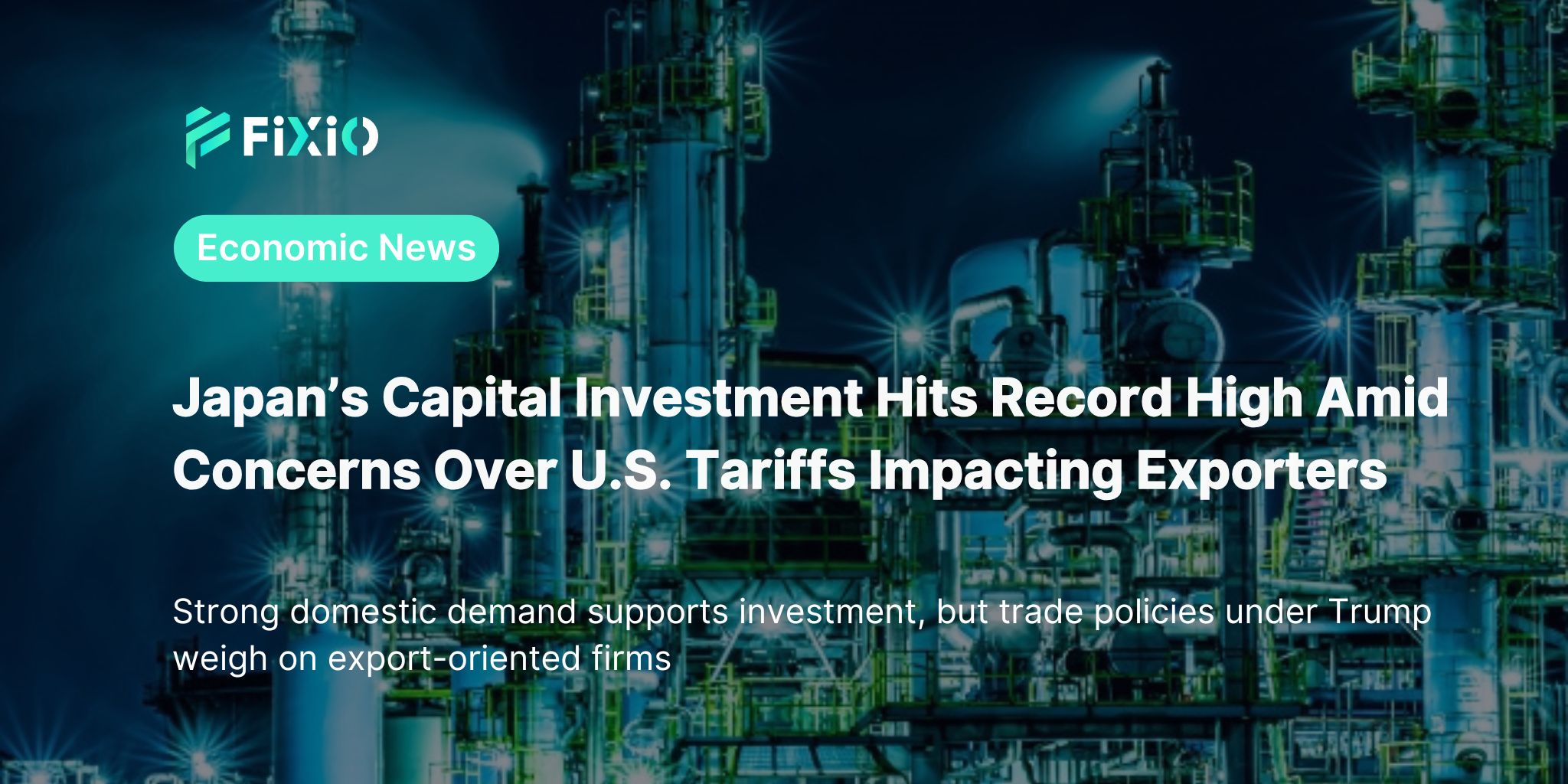
In the January–March quarter of 2025, capital investment by Japanese companies rose 6.4% year-on-year to 18.8 trillion yen (approximately $130 billion), marking a record high. This surpassed the previous peak seen in capital expenditure statistics since 2007. The growth was led by domestically focused sectors supported by price pass-through and inbound demand. With the recovery of inbound tourism, construction investment in hotels and commercial facilities became active. Capital investment rose by 13% in the food industry and 11% in the real estate sector, showing clear upward momentum.
Meanwhile, capital investment in the automotive industry fell 1.4%, and factory equipment makers saw a 4.1% decline, believed to be influenced by U.S. tariff policies. President Donald Trump has imposed a 25% tariff not only on steel and aluminum but also on imported automobiles. Moreover, Japan may face additional tariffs of up to 24% starting in July if negotiations fail, potentially worsening the impact. Takeshi Minami from the Norinchukin Research Institute stated, "Due to the Trump administration’s tariff policies, export-oriented companies are shifting toward a cautious stance regarding new investments."
On a seasonally adjusted basis, capital investment rose 1.6% from the previous quarter, which had seen a 0.2% decline in October–December 2024—the first drop in about four years. This suggests variability in domestic capital expenditure, and the impact on the revised GDP data scheduled for release on June 9, 2025, is expected to be limited. Meanwhile, the preliminary GDP figure for the January–March quarter showed a 0.7% annualized decline in real GDP, mainly due to sluggish personal consumption and exports.
During the same period, corporate sales rose 4.3% year-on-year, and recurring profits increased by 3.8%, indicating overall solid earnings. However, according to the Japan Research Institute, if all of the Trump administration’s tariffs are implemented, exports to the U.S. could decline by up to 6 trillion yen, compressing corporate profits by as much as 25%. As a result, the wage growth rate in the manufacturing sector, currently at 3%, is projected to slow to around 2–2.4% by 2026. This could undermine the Bank of Japan's base scenario of “wage growth driving domestic demand → normalization of interest rates.”
This quarter's statistics show that the Japanese economy continues to recover led by domestic demand, while also highlighting that U.S. trade policies remain a major concern for export-oriented firms. Corporate investment strategies and policy decisions will likely continue to be heavily influenced by the international environment.
For the latest FX news and analysis, visit the FIXIO Blog.
*This article is intended for informational purposes only and does not constitute specific investment advice. Final investment decisions should be made at your own discretion and responsibility.
Japanese corporate capital investment hit a record high, but export-oriented firms slowed investment due to U.S. tariff policies. GDP slightly declined, corporate earnings remain solid, yet tariff risks warrant caution. Future investment and policies depend heavily on the international environment.
Superior trade execution & trading conditions with the NDD method.

The online FX industry provides a platform for investors worldwide to engage in the buying and selling.

Subscribe to our daily newsletter and get the best forex trading information and markets status updates
Trade within minutes!
Comment (0)